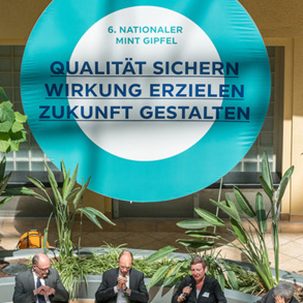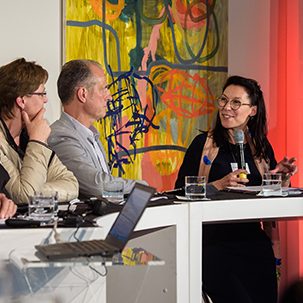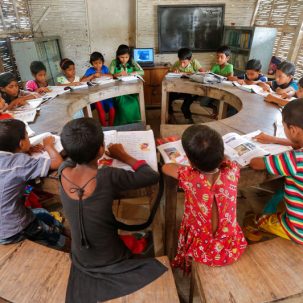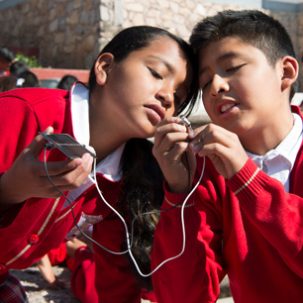STEM education in Germany
Robotics, 3D printing, nanotechnology, genetic technology, biotech, mobile internet, and IT are among the most important vocational fields of the future. There are even fields that have yet to be named. What does this mean for education and vocational training? What teaching and learning methods will we need? These questions of education come up every day in Germany: in classrooms, in research, and in government.
Education in Germany
Concrete education concepts are needed to individually address the challenges presented by digitalization. This goes beyond the increased implementation of computers, tablets, or smartphones in the classroom; skills and methods that lead to creative and flexible teaching and learning are much more important. In all areas of society, there is a broad consensus that STEM education is a fundamental part of creating professional and personal opportunities, taking part in a society, and developing the economy. With this in mind, Germany has significantly increased its efforts in pursuit of high-quality, integrated STEM education. In central alliances, such as Nationales MINT Forum (National STEM Forum, Germany), a number of stakeholders are working toward better STEM education in Germany. These efforts are geared toward concrete areas of improvement, such as qualification for educators and subject specialists, increasing the presence of women in STEM professions, or improving the quality and effectiveness of STEM projects.
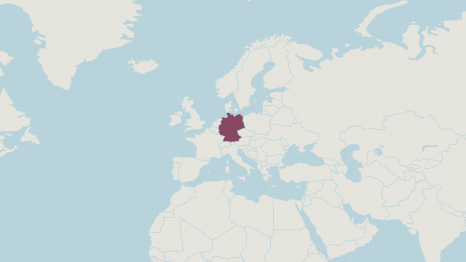
- Education budget: 6.4 % of GDP (2015)
- WEF Ranking Maths and Science: 15 of 137 (2017/18)
- PISA study: 13 of 71 (2015)
- Important topics: Skills for the digital transformation; value-building STEM lessons; increasing the number of women in STEM professions.
Our engagement in STEM
Our work focuses on increasing interest in STEM subjects and developing the necessary skills early on and for the long term. One of the cornerstones of our work is qualified education for teachers and educators, which leads to innovative methods of teaching. In addition to our hands-on work, active participation in networks and on committees is an important element in our education efforts. Together with other active partners, this creates synergies and bundles the strengths of individual initiatives.
Our committee work
We are also active with the following committees and initiatives:
Our hands-on efforts
OECD Learning Compass 2030 – An aspirational vision for the future of education
Our engagement on the future of education involves international and interdisciplinary cooperation that spans generations and organizations. We are joined by policymakers and a range of social and civic groups on the OECD Future of Education and Skills 2030 project. This project led to the OECD Learning Compass 2030, which provides an ambitious vision for the future of education. It includes helpful guidance on developing the German education landscape for 2030. Together with our German-speaking partner organizations, we published a German translation of the Learning Compass 2030 that can serve as a starting point for further dialog with relevant stakeholders in the German education system.
Dr. Barbara Filtzinger
barbara.filtzinger@siemens-stiftung.org
+49 89 540487 0
Background material
Autorengruppe Bildungsberichterstattung
Körber-Stiftung and acatech
acatech and Körber-Stiftung




